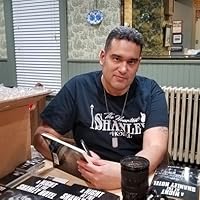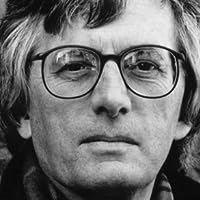Cemeteries Quotes
Quotes tagged as "cemeteries"
Showing 1-29 of 29

“We are aberrations—beings born undead, neither one thing nor another, or two things at once … uncanny things that have nothing to do with the rest of creation, horrors that poison the world by sowing our madness everywhere we go, glutting daylight and darkness with incorporeal obscenities. From across an immeasurable divide, we brought the supernatural into all that is manifest. Like a faint haze it floats around us. We keep company with ghosts. Their graves are marked in our minds, and they will never be disinterred from the cemeteries of our remembrance. Our heartbeats are numbered, our steps counted. Even as we survive and reproduce, we know ourselves to be dying in a dark corner of infinity. Wherever we go, we know not what expects our arrival but only that it is there.”
― The Conspiracy Against the Human Race
― The Conspiracy Against the Human Race

“Art is the conscious making of numinous phenomena. Many objects are just objects - inert, merely utilitarian. Many events are inconsequential, too banal to add anything to our experience of life. This is unfortunate, as one cannot grow except by having one’s spirit greatly stirred; and the spirit cannot be greatly stirred by spiritless things. Much of our very life is dead. For primitive man, this was not so. He made his own possessions, and shaped and decorated them with the aim of making them not merely useful, but powerful. He tried to infuse his weapons with the nature of the tiger, his cooking pots with the life of growing things; and he succeeded. Appearance, material, history, context, rarity - perhaps rarity most of all - combine to create, magically, the quality of soul. But we modern demiurges are prolific copyists; we give few things souls of their own. Locomotives, with their close resemblance to beasts, may be the great exception; but in nearly all else with which today’s poor humans are filling the world, I see a quelling of the numinous, an ashening of the fire of life. We are making an inert world; we are building a cemetery. And on the tombs, to remind us of life, we lay wreaths of poetry and bouquets of painting. You expressed this very condition, when you said that art beautifies life. No longer integral, the numinous has become optional, a luxury - one of which you, my dear friend, are fond, however unconsciously. You adorn yourself with the same instincts as the primitive who puts a frightening mask of clay and feathers on his head, and you comport yourself in an uncommonly calculated way - as do I. We thus make numinous phenomena of ourselves. No mean trick - to make oneself a rarity, in this overpopulated age.”
― The Etched City
― The Etched City

“the cemetery is the home of those who are not here, come in.”
― If on a Winter’s Night a Traveler
― If on a Winter’s Night a Traveler

“Though angels were easy to finds in cemeteries, she said that she didn't especially care for funereal angels and tombstone cherubs -- she wanted her angels among the living, not watching over the already dead -- and thus she scoured parks and gardens for the angels with whom, on some level, she wanted to commune.”
― Secrets of Eden
― Secrets of Eden

“And when my spirit wants no stimulus or nourishment save music, I know it is to be sought in cemeteries: the musicians hide in the tombs; from grave to grave flute trills, harp chords answer one another.”
― Invisible Cities
― Invisible Cities

“I hear nothing. I hear nothing, but what does it mean that I hear nothing? I walk in the cemeteries of this city at night and I hear nothing. I walk among mortals and sometimes I hear nothing. I walk alone and I hear nothing, as if I myself had no inner voice.”
― Merrick
― Merrick
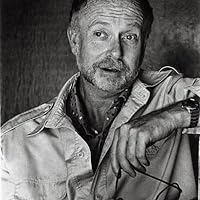
“They ought to bury people in hospitals and let sick people get well in the cemeteries.”
― The Pigman
― The Pigman

“No sooner was I safely among the gravestones than a great feeling of warmth and calm contentment came sweeping over me.
Life among the dead.
This was where I was meant to be!
What a revelation! And what a place to have it!
I could succeed at whatever I chose. I could, for instance, become an undertaker. Or a pathologist. A detective, a gravedigger, a tombstone maker, or even the world's greatest murderer.
Suddenly the world was my oyster—even if it was a dead one.”
― As Chimney Sweepers Come to Dust
Life among the dead.
This was where I was meant to be!
What a revelation! And what a place to have it!
I could succeed at whatever I chose. I could, for instance, become an undertaker. Or a pathologist. A detective, a gravedigger, a tombstone maker, or even the world's greatest murderer.
Suddenly the world was my oyster—even if it was a dead one.”
― As Chimney Sweepers Come to Dust

“Meanwhile, we have carved out a place for ourselves among the dead; the glittering pinnacles of commerce rise along the skyline, their foundations sunk in a charnel house; and the lost lie forgotten below us as, overhead, we persaude ourselves that we are immortal and carry on the business of life.”
― Necropolis: London and Its Dead
― Necropolis: London and Its Dead

“The harbour of influence is richer in the cemeteries where people are buried with their music on their tongues unsung. Don't leave your potentials untouched!”
― Leaders' Watchwords
― Leaders' Watchwords
“A soft breeze settled around our shoulders as we walked into the cemetery. That same breeze made the world around us shiver a little bit. The slick green leaves of the tall trees rustled, and the long curtain of ivy dangling from the branches began to wave. When the ivy blows in the graveyard, it casts the prettiest lacelike shadows on the ground. They remind me of banners, rippling over the dearly departed in silent celebration.”
― The Key to Extraordinary
― The Key to Extraordinary

“Enormous cemeteries existed among sedentary civilizations, where the weight of the past grew larger than any present time.”
― The Children of the Sky
― The Children of the Sky

“You are a cool cemetery.
You have the sinner’s grave
You have the saint’s earth
colliding
You have all the beds
narrow as a knife;
as if a rally of tombstones to defend death.
But you can’t really postpone
the inauguration of my burial,
can you?
From the poem - Few Words to Cemetery”
― Beyond The Vernal Mind
You have the sinner’s grave
You have the saint’s earth
colliding
You have all the beds
narrow as a knife;
as if a rally of tombstones to defend death.
But you can’t really postpone
the inauguration of my burial,
can you?
From the poem - Few Words to Cemetery”
― Beyond The Vernal Mind

“In their death as in their life the Latins are more socially disposed than we, and the graves in their cemeteries almost always touch each other, they are so closely crowded together.”
― Willa Cather in Europe: Her Own Story of the First Journey
― Willa Cather in Europe: Her Own Story of the First Journey
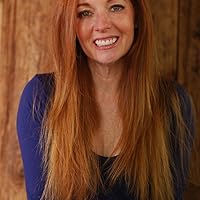
“Superstition, as indigenous to Louisiana as gators and Tabasco, holds that the spirits of the dead avenge any disruption of their bodies, which makes one wonder at the rancor released on the 1957 day when fifty-five white families re-interred their beloved in Hope Mausoleum after the Rt. Rev. Girault M. Jones, Bishop of Louisiana, deconsecrated the Girod Street Cemetery, condemning every last African American bone to anonymity in a mass grave in Providence Memorial Park. From that pogrom grew the Superdome. Thirteen acres of structural steel framing stretch up to 273 feet from the unholy ground, a towering testament to the American propensity to cheer black men into the end zones and desert them entirely six points later.”
― Landfall
― Landfall
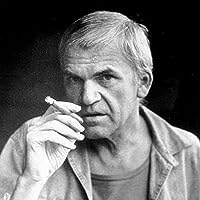
“Cemeteries in Bohemia are like gardens. The graves are covered with grass and colorful flowers. Modest tombstones are lost in the greenery. When the sun goes down, the cemetery sparkles with tiny candles. It looks as though the dead are dancing at a children's ball. Yes, a children's ball, because the dead are as innocent as children. No matter how brutal life becomes, peace always reigns in the cemetery. Even in wartime, in Hitler's time, in Stalin's time, through all occupations. When she felt low, she would get into the car, leave Prague far behind, and walk through one or another of the country cemeteries she loved so well. Against a backdrop of blue hills, they were as beautiful as a lullaby.”
―
―

“Over all was that air of abandonment and decay which seems nowhere so fit and significant as in a village of the forgotten dead.”
― The Death of Halpin Frayser
― The Death of Halpin Frayser
“There’s a great mystery in that cemetery, even deeper than the painful or tragic events that populated it. Inside its stone walls are the citizens of my town: they built the stores and mapped out the roads, put up electric lights, founded the hospital, and organized the public library. A few probably lived in my home at one time. They have made my life possible in more ways than I can count, yet we are entire strangers. . . .
I do not take these silent neighbors for granted either. Sometimes, when all of the library staff have gone home, the lights are off, and I’m working alone at my desk, I think about them . . . . But most of the time, my feeling is more sadness than fear. It is hard to think about people who have lived full and eventful lives, only to end up as a faded name on a monument; it is even harder to realize that this will eventually happen to me and to all the people I love. My library shelves are full of forgotten books written by unknown people. It is an amazing fact, one that I sometimes contemplate with awe, that all of these books are connections with people now on the other side of mystery, surviving only as a name on a tattered binding. That’s one reason why I sometimes pause and say their names out loud, just to give the universe a chance to hear an old and beloved combination of words one more time. (pp. 100-101)”
― The Spiritual Practice of Remembering
I do not take these silent neighbors for granted either. Sometimes, when all of the library staff have gone home, the lights are off, and I’m working alone at my desk, I think about them . . . . But most of the time, my feeling is more sadness than fear. It is hard to think about people who have lived full and eventful lives, only to end up as a faded name on a monument; it is even harder to realize that this will eventually happen to me and to all the people I love. My library shelves are full of forgotten books written by unknown people. It is an amazing fact, one that I sometimes contemplate with awe, that all of these books are connections with people now on the other side of mystery, surviving only as a name on a tattered binding. That’s one reason why I sometimes pause and say their names out loud, just to give the universe a chance to hear an old and beloved combination of words one more time. (pp. 100-101)”
― The Spiritual Practice of Remembering
“Every Friday evening since the late sixties, at 5:00 p.m. we'd walk into the nearby Brompton Cemetery, which, since its four corners connect Fulham, Chelsea, South Kensington, and Earl's Court, was a convenient meeting point for all our friends. We'd plan our weekend on the grave of Admiral Angus Whitewater. We didn't know the Admiral, he just happened to have an impressive horizontal slab of black marble over his last resting place, which made a great table for drinks.”
―
―

“She believed cemeteries held the stories that history books could not always document; they were the overlooked, underused classrooms beneath our feet . . .”
― The Death Class: A True Story About Life
― The Death Class: A True Story About Life
“As we drove down the highway and out of the Till country, we passed a large, well-kept graveyard. At one end of it there was a section in very bad condition, separated from the rest by a high iron fence. "That's the Negro section," Amzie remarked, "but I don't get excited about that. The graveyard is the only place where things can be separate ... and equal.”
― Down the Line: The Collected Writings of Bayard Rustin
― Down the Line: The Collected Writings of Bayard Rustin

“The cholera was much more devastating to the black population, which was larger and poorer, but in reality it had no regard for color or background.”
―
―

“Everything in Louisiana is flat, so I found myself lost in the expanse of crawfish fields, telephone lines, rice silos, and lonesome rural homes, and my ability to judge distance became compromised. Nevertheless, it seemed a long, bouncy ride on dirt roads before we arrived at Ardoin (pronounced “ard-wahn”) Cove Cemetery, the rumbling truck engine often stirring pink-tinged Egrets from the roadside slews.”
― Abandoned Sulphur, Louisiana
― Abandoned Sulphur, Louisiana
“Throughout the ages, humans have had a need to mark the time and place when and where people make the final stop on their journey from this world to the next.”
― Southern Arizona Cemeteries
― Southern Arizona Cemeteries
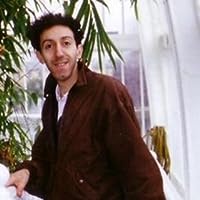
“The whole life of human beings consists of constantly dealing with something or many things in order to forget the great fear and chill that the cemetery and death create in our consciousness!”
―
―
All Quotes
|
My Quotes
|
Add A Quote
Browse By Tag
- Love Quotes 97k
- Life Quotes 75.5k
- Inspirational Quotes 72.5k
- Humor Quotes 43.5k
- Philosophy Quotes 29.5k
- Inspirational Quotes Quotes 27k
- God Quotes 26k
- Truth Quotes 23.5k
- Wisdom Quotes 23.5k
- Romance Quotes 23k
- Poetry Quotes 22k
- Death Quotes 20k
- Happiness Quotes 18.5k
- Life Lessons Quotes 18.5k
- Hope Quotes 18k
- Faith Quotes 18k
- Quotes Quotes 16.5k
- Inspiration Quotes 16.5k
- Spirituality Quotes 15k
- Religion Quotes 15k
- Motivational Quotes 15k
- Writing Quotes 14.5k
- Relationships Quotes 14.5k
- Life Quotes Quotes 14k
- Love Quotes Quotes 13.5k
- Success Quotes 13.5k
- Time Quotes 12.5k
- Motivation Quotes 12k
- Science Quotes 11.5k
- Knowledge Quotes 11k


